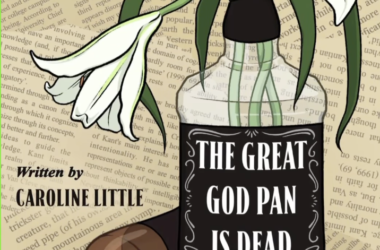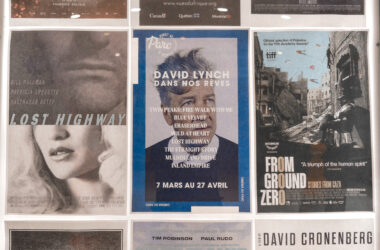Colm Tóibín is a writer fascinated by other writers.
Tóibín, the award-winning Irish journalist and author, first considered writing a novel after reading the work of other journalists who wrote fiction: Ernest Hemingway, Joan Didion, Norman Mailer, and V.S. Naupaul. His fifth novel, The Master, details the life of Henry James, the expatriate American writer.
On Thursday, Tóibín delivered a lecture at McGill on another great Irish author, Oscar Wilde, and his experiences in prison. As he spoke about Wilde, Tóibín displayed an almost-encyclopedic knowledge of the writer’s flamboyant life and tragic end. This is a man who clearly loves writers.
But writing hasn’t always come easily to Tóibín, who described crafting prose as a tentative process, full of trial and error. He began writing poetry at age 12 and had a few of his poems published as a teenager. But by the time Tóibín got to university, other students’ verse was eclipsing his own.
“I would send them out to serious magazines,” he says, “and they would just send them back.”
Discouraged, Tóibín (whose full name is pronounced CULL-um toe-BEAN) gave up on poetry and became a journalist with Magill, an Irish newsmagazine.
“I learned a lot through journalism about writing: about writing for an audience, about writing clearly,” he says. “I did that. And then an idea for a first novel came to me.”
That novel, which Tóibín spent years writing on weekends and holidays while continuing to work as a journalist, eventually became The South. Tóibín spent another two years searching for a publisher. At one point, his agent suggested he shelve the manuscript and begin work on a second novel. Tóibín began a second book, but found it difficult to write.
“Eventually a small publisher in London published The South, and by that time I had enough work on the second book to keep going,” he says. “And then it was just the slow business of reducing the hours as a journalist, upping the hours as a novelist.”
In the years since, Tóibín has published six novels, a play, and several other books. Two of his novels, The Blackwater Lightship and The Master, have been shortlisted for Britain’s prestigious Man Booker Prize, and his most recent one, Brooklyn, made the longlist.
Some of this success, Tóibín says, is due to his background as a journalist.
“Journalism is very useful in that you’re always working toward creating flavour, creating rhythm, beginnings and ends, holding the reader,” he says. “And therefore, when you were writing an actual chapter, you were aware that you needed some of the same things there.”
Though Tóibín writes his book reviews and magazine articles on a computer, he prefers writing his novels longhand, scrawling passages in notebooks in black fountain pen.
“I’m not sure it really makes any difference in the end, but at the beginning it does,” he says. “Especially if you use ink, and you can actually see it and smear it.”
Tóibín is, without question, an Irish author. Though he currently lives in New York and teaches at Princeton, his Irish accent is strong and his novels consistently deal with Irish themes.
His position at Princeton – which follows academic appointments at Stanford and the University of Texas at Austin – enables Tóibín to keep himself fresh, allowing him to formulate ideas that feed back into his own work. As for instructing students, he says, Tóibín emphasizes the use of detail, as well as the avoidance of cliché.
“Every sort of writing can always be improved by rewriting,” he says. “And every idea that you have – maybe there’s another idea that’s better. For example, if you have a stepfather in a story and the stepfather’s really mean and horrible, it’s really worth saying to the student, ‘Have you thought of making him really nice and good?'”
For all the critical acclaim his work has accrued, however, Tóibín is still reluctant to describe novel writing as his profession: “A novelist is not the word because you’re not a novelist – you just write novels sometimes.”








